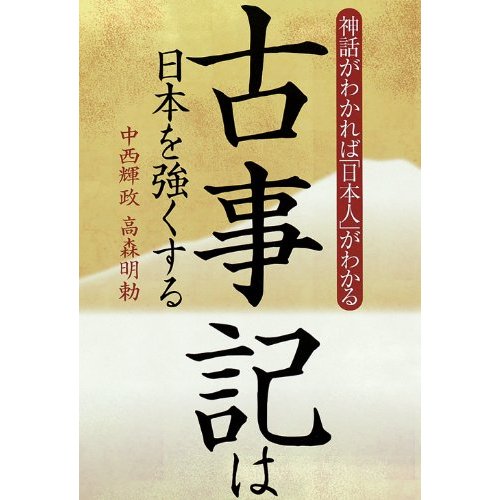"Work and Birth: Insights from the Kojiki"
- 2023/08/13 19:51


"Work and Birth: Insights from the Kojiki"
Professor Nakanishi's interpretation of the Kojiki and Nihon Shoki sheds light on the Japanese national identity and its spiritual foundation. When considering daily labor, the Old Testament and Japanese mythology offer contrasting perspectives. In the Old Testament, the story of Adam and Eve eating the "fruit of knowledge of good and evil" leads to the "punishment" of labor for men and the "pain of childbirth" for women. Thus, work is viewed as a divine punishment, and workers often dream of early retirement to enjoy a leisurely life.
In contrast, Japanese mythology presents a different perspective on labor. Even the supreme deity, Amaterasu Omikami, is depicted engaging in activities like farming and overseeing weaving. The act of working is not a divine punishment but a blessing, as exemplified by the tale of Amaterasu bestowing rice from the heavenly realm to sustain earthly agriculture. Even the Emperor, a symbol of national unity, participates in rice planting and harvesting annually, and this is seen as a source of gratitude rather than humiliation. For the Japanese, labor is a source of joy.
"Alignment of Contemporary Management Theory with Japanese Mythology"
Considering the effect of perceiving work as either a punishment or a blessing, which perspective would likely boost morale? In an aging society, where individuals in their 80s remain healthy, the choice between a retirement of leisure or contributing to society using one's skills and experience becomes pertinent. Modern management theory emphasizes employee satisfaction and organizational performance, aligning closely with the Japanese mythological view of labor as a divine blessing. This human-centric approach seems more compatible with Japanese culture than the pursuit of career advancement and wealth found in some foreign contexts.
By understanding the labor perspective from Japanese mythology, individuals may find renewed enthusiasm for their work and even guide their workplaces toward a more fulfilling direction. The myths serve as a source of inner strength, influencing people's overall well-being.
"Childbirth: Pain or the Sanctity of Life's Continuation?"
The concept of "pain in childbirth" as punishment in the Old Testament contrasts with the Japanese perspective. Japan's islands are seen as a land where divine life resides, and reproduction is a sacred act reflecting the gods' example. In this light, reproduction is not a punishment but a blessing, a divine act. The significance of both labor and reproduction is evident in the nation's high regard for women's roles in life's continuation.
This notion has likely contributed to the esteemed status of Japanese women historically. Fostering a deeper understanding of this aspect of Japanese mythology might even offer solutions to issues like declining birth rates. Acknowledging the sanctity of life's continuation through myths could rejuvenate Japan's vitality.
"Implications of 'Avatar' and the Connection to Japanese Mythology"
Japan's view of the land as sacred, born of the marriage of divine beings Izanaki and Izanami, sets it apart from the Old Testament. The movie "Avatar," depicting a lush planet where beings are deeply connected to nature, resonated widely. The film's impact, leading to what's been called the "Avatar syndrome" in which viewers experienced depression upon returning to urban life, signifies a growing awareness of the bond between humans and nature. This idea aligns with Japan's longstanding view of the environment as sacred and is reflected in its advanced environmental technologies.
Studying Japanese mythology and embracing its perspective on nature could position Japan as a leader in global environmental protection. Such a revitalized understanding might empower Japan to provide unique solutions to global challenges and infuse the nation with newfound energy.
"Rejuvenating Japan through the 'Kojiki'"
As demonstrated, Japanese mythology holds wisdom for 21st-century challenges in work, marriage, and nature. The dismissal of polytheistic religions like Japanese mythology as primitive, while elevating Christianity as modern, is a dated view. Japanese myths offer valuable insights and solutions to contemporary issues. If Japanese individuals re-engage with "Kojiki" and "Nihon Shoki," they could potentially contribute novel solutions to global problems, making a significant impact and revitalizing Japan's future. (From the International Japanese Cultural Studies Course)